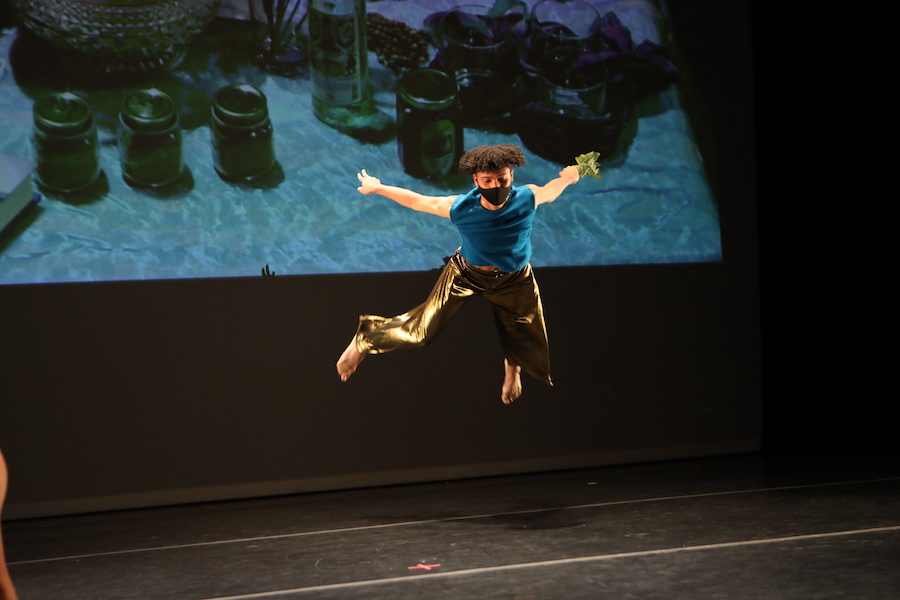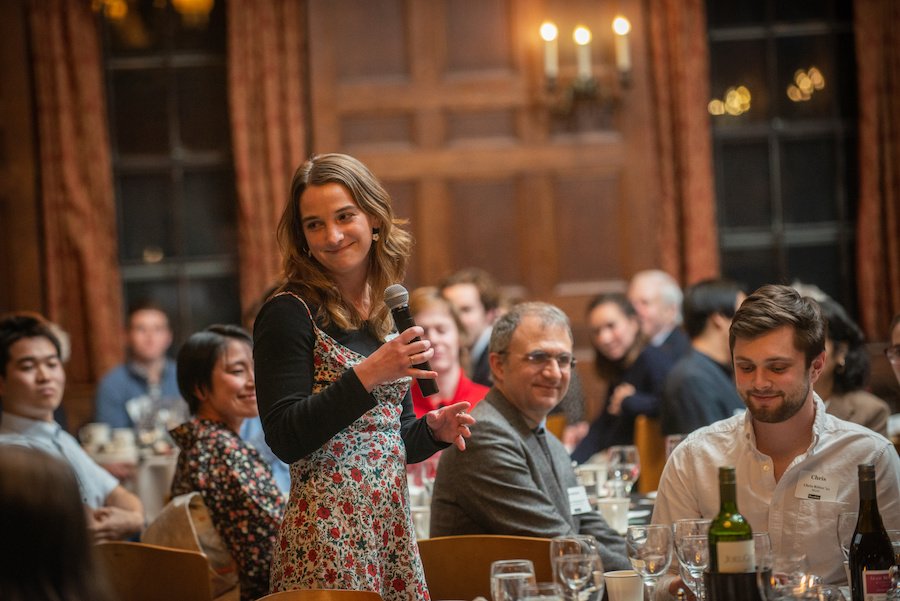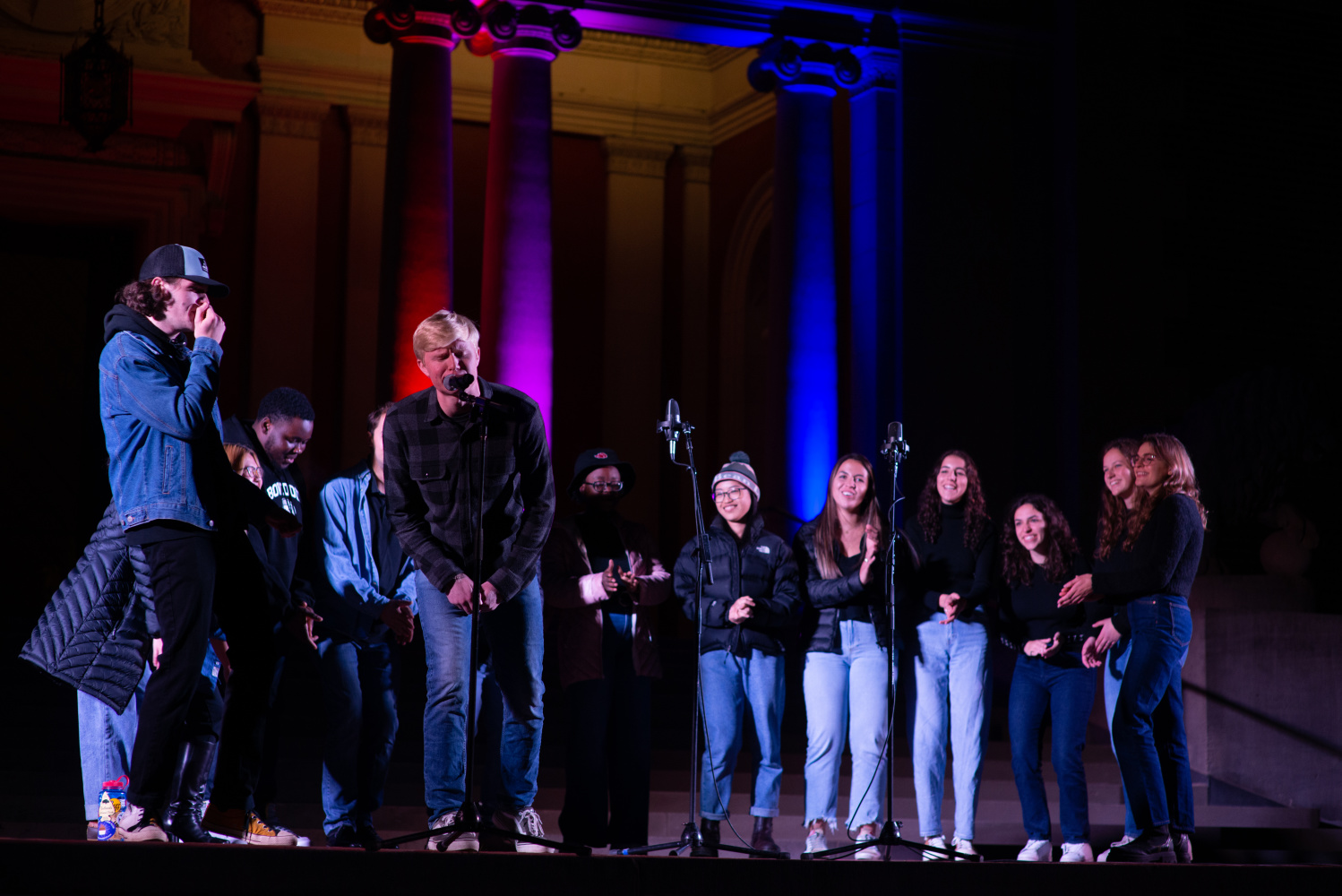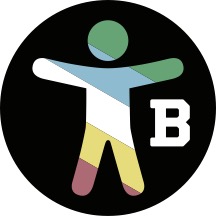‘No Hate November’ Talks Broach Racism in Everyday Life
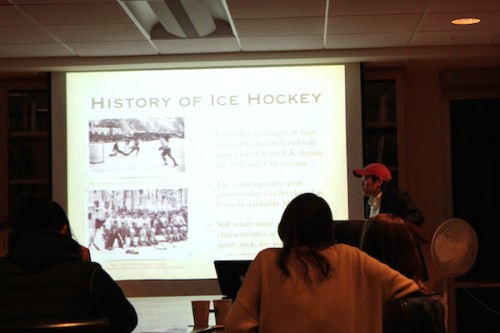
Last week, two students and a professor gave talks on campus for Bowdoin’s No Hate November series. Throughout the month, Bowdoin Student Government organized a number of events to celebrate multiculturalism on campus and to continue educating students, staff and faculty about each other’s differences. The goal of the annual series is to help make Bowdoin a more welcoming, tolerant environment for people of all identities, backgrounds and experiences.
Two students presented at a Food for Thought evening in Hawthorne-Library’s Nixon Lounge on Monday evening. Food for Thought, which BSG organizes several times a semester, gives students a venue to offer short talks on subjects important to them and helps to foster student-to-student education.
Michelle Kruk ’16, who spoke first, discussed race and gender on the dating application Tinder. Tinder is an app that allows users to chat with other interested users in geographic proximity. Kruk, who identified herself as Polish and Mexican, used examples from her Tinder experience to show how women of color are treated in the present-day romantic arena. Kruk spoke about how the language and content of the messages she received on Tinder exemplified racism, racial fetishization and objectification. She then argued that racism and fetishization can result in increased sexual and reproductive violence toward women of color.
After a brief snack break, Lan Crofton ’17 gave her lecture, “Growing up: Asian and/or American?” She told the audience that she had been adopted from China at the age of four months to a single-parent household. Crofton, who played ice hockey on both boy’s and girl’s teams throughout her childhood, now plays on the women’s team at Bowdoin. Crofton said there is a notable lack of racial diversity in hockey, and asked the crowd to think about the different levels at which that homogeneity might manifest itself — among the players, spectators, coaches and administrators, and at the professional, collegiate and school levels. Last year Crofton said she was the only woman of color on the Bowdoin women’s ice hockey team. She mentioned hearing racial jokes that had upset her and her difficulty discussing them with her white coaches.
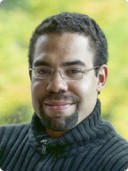
Purnell argued that dressing up as a member of a U.S. minority group — e.g., as a Native American, a gang member or a Mexican ranchero — is a modern-day manifestation of racism, akin to the racism of minstrel shows. “Race exists because people constantly make and remake the meaning of race in their everyday lives and everyday practices,” Purnell said. “People make and remake the meaning of race through their jokes, their songs, their stories, their celebrations, their language, their plays, their pranks.”
He continued, “Modern life shows how, on multiple levels and in interrelated ways, that when human subjects become objects, inequality and misery spread, and people resist.”
